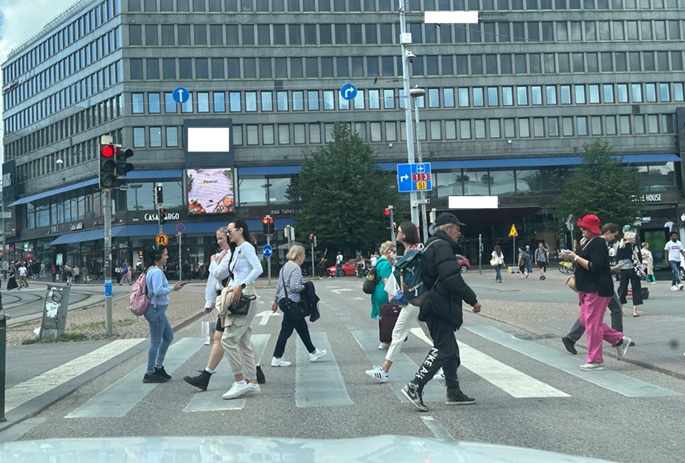
5% of Helsinki residents feel unsafe in weekend evenings: survey
As many as 5 percent of Helsinki residents feel unsafe or fairly unsafe when walking alone outside in their residential area in weekend evenings, according to a survey carried out by the City of Helsinki. The safety survey, however, said that 77 percent of residents feel at least fairly safe while 8 percent cannot say how they feel, said the City of Helsinki in a press release on Thursday. Helsinki residents generally feel safe in their own residential areas in all city districts, but some areas are commonly perceived as unsafe in weekend evenings. The prevalence of perceived unsafety has remained largely unchanged since the previous safety surveys carried out three and six years ago. There are clear differences in the perceived safety of weekend evenings between the different residential areas of Helsinki. In a few districts, the proportion of people who feel unsafe exceeds a quarter, while in some areas it is closer to 5 percent. Differences between areas regarding perceived unsafety have remained unchanged in recent years. The proportions of Helsinki residents who feel unsafe are higher in certain eastern and north-eastern districts of the city, for example. Socio-economically disadvantaged areas are more commonly perceived as unsafe. People in Helsinki feel unsafe most often on weekends in the northeastern and eastern districts of the city, stretching from Vuosaari to Malmi and Puistola. In addition, people said they felt less safe in Helsinkis districts of Alppiharju, Kallio, and Vallila. Feelings of being unsafe are also common in downtown Helsinki on the weekends. Women and the youngest respondents, aged 15–29, are most likely to feel unsafe in the city centre. In the evenings, people felt significantly less safe on the metro and local trains than on trams or buses. Witnessing violence and drug use in one's own neighbourhood is strongly associated with perceived unsafety in weekend evenings. In addition to these, factors associated with perceived unsafety include prior experiences of being a victim, poor health and low trust that other residents would provide help. Women are significantly more likely than men to feel unsafe in urban spaces. “One of the key elements in making urban areas safer is crime prevention. A sense of safety can also be supported by strengthening trust in other people in the neighbourhood and by taking care of the health of all city residents,” said Researcher Jenni Erjansola of the City of Helsinki. Helsinki surveys city residents perceptions of safety in an extensive safety survey every three years. The data for the latest Helsinki safety survey was collected in autumn 2024. The survey was sent to approximately 12,000 Helsinki residents between the ages of 15 and 79 who were picked by random sampling. Of these residents, 52% (6,205 residents) responded to the survey, as a result of which the survey sample is considered to be highly representative of the views of Helsinkis adult population.